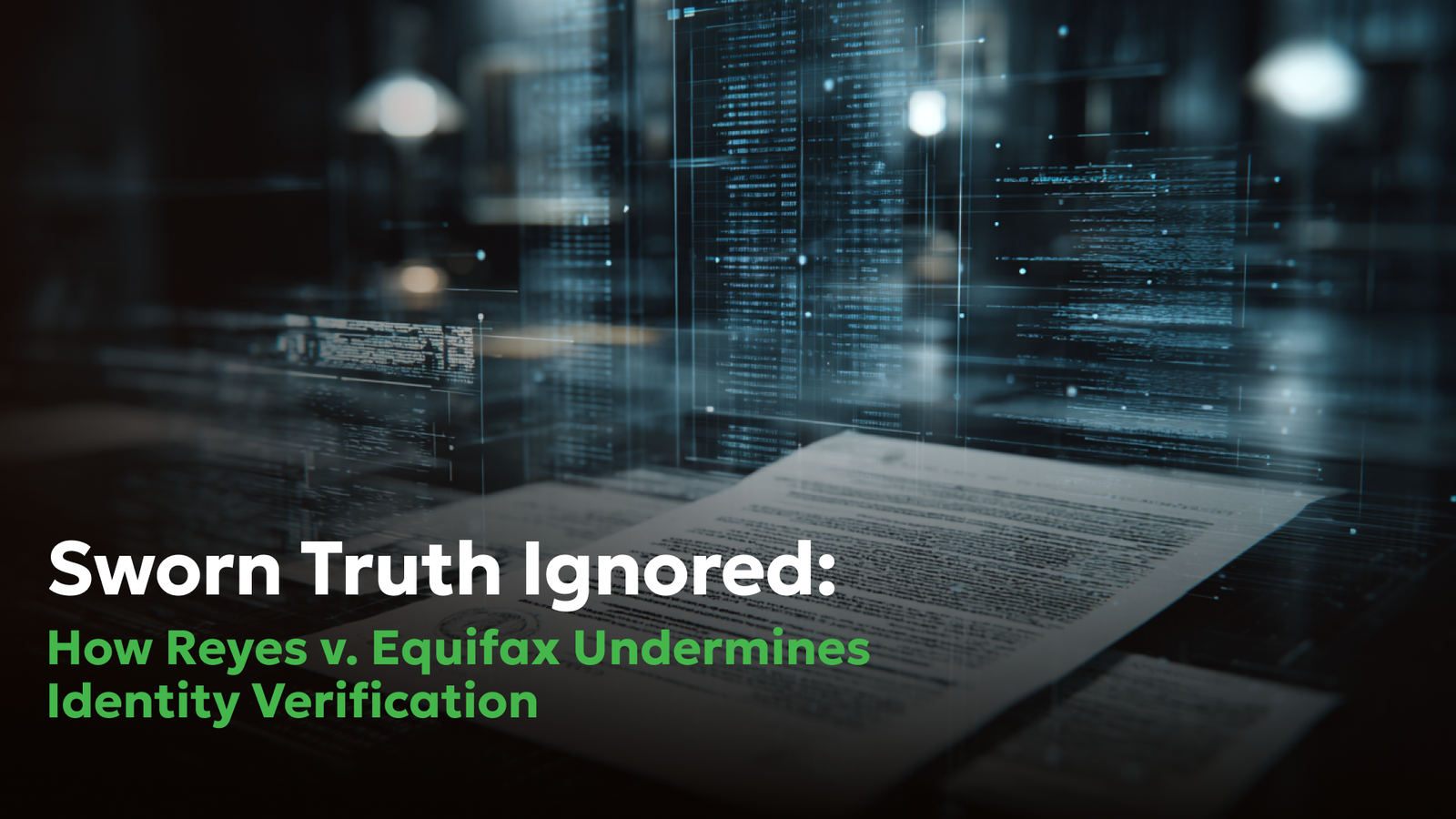How to Know if You Are a Victim of Identity Theft
- Blog
- Credit Report Identity Theft
How to Know if You Are a Victim of Identity Theft

Are you battling with identity theft aftershock? We can help you jumpstart your recovery. Learn how!
Identity theft can strike out of nowhere, and when it does, you don’t have to throw your entire life away. Moving quickly and knowing the correct steps to take can help you make a full recovery. We explain how to know if you’re a victim of identity theft, what to do if you are, and who to contact. Keep reading for more details.
Identity theft is a crime that happens when someone’s personal details are stolen and used for fraudulent purposes. ID theft continues to rapidly spread across the U.S. and the world. If you’ve recently googled, “how to know if you are a victim of identity theft,” chances are you may be a victim. Keep reading to learn some of the major indicators of ID theft:
- Unknown activity on credit reports. One of the ways to discern if you are an identity theft victim is to get a copy of your free credit reports. Once you pull your reports, review them for any unknown activity, such as identity thieves opening accounts in your name. You should act quickly to report and dispute the activity when you notice it.
- Unexpected bills or charges. If you start getting bills or collection notices for products or services you never agreed to, that's a sign of identity theft. For example - if you get a bill for a new pool you never had installed chances are someone has targeted you, and you may be an identity theft victim. Of course, that’s just one of several examples, but you get the gist. Please note that sometimes the charges may be more subtle and you may overlook them because it’s not an expensive purchase like a new pool, but you shouldn’t overlook any unexpected bills. Every charge and every dollar counts when fighting identity theft.
- Your financial institutions contact you. If you get a message from your bank or other financial institutions alerting you of suspicious activity or that someone is attempting to make purchases that you never consented to, this is usually a clear sign that you should investigate.
- Unknown medical bills. Anytime you receive medical bills for medical services you never received, it is a cause for concern. Just like thieves can open credit accounts in your name, they can also get medical services with your personal information. If you get bills for procedures that you never had or from doctors that you've never seen, you may have a medical identity theft situation on your hands.
- Passwords no longer work. If you attempt to log into your accounts but are unable to access them (your email, bank account or other online accounts) because your password or login credentials were changed without your consent, that is a sign that your accounts have been compromised. As soon as you know about the breach, call those providers to freeze or lock the accounts and reset your passwords. Remember to always use unique and strong passwords because these are harder to guess.
- Excessive calls from creditors. If there is an unusual change in the number of calls you’re receiving from creditors or debt collectors, a scammer may have opened accounts in your name and failed to pay the bills resulting in an increase in debt collection attempts.
Which Action is Best if You Suspect You're the Victim of Identity Theft?
Now that you know what to look for when determining if a person may be a victim of identity theft, you should take action right away. The best action is to get help from identity theft attorneys who have ID theft recovery experience.
Along with contacting an attorney you should contact the credit bureaus and request that your credit profiles be frozen or locked. Also contact your financial institutions (banks and credit card companies) for their assistance. Banks may suggest closing accounts as the best option because even after your credit is frozen or locked, thieves can still open bank accounts in your name. On the other hand, after your credit profile is frozen or locked, it is very difficult for scammers to open additional credit accounts in your name due to the safeguards that are in place.
Be sure to file complaints with the police and the Federal Trade Commission (FTC). Your local police will supply you with a police report (this will come in handy later) and the FTC will allow you to file a report about the ID theft and any other scams you may have fallen victim to.
After contacting those entities mentioned above, consider putting fraud alerts and advanced credit monitoring on any accounts that remain open. If all else fails and you have proof that you are a victim of ID theft, you can contact the Social Security Administration (SSA) and request a new Social Security number. You will have to do that by visiting an office in your local area or making an appointment.
How Can an Attorney Help You?
An attorney can help by providing you with guidance on how to navigate the often complicated and time-consuming process it takes to bounce back after identity theft. Here are some of the ways a consumer attorney will help.
- Legal advice. Consumer Attorneys spend endless hours studying and researching the most updated laws. Our attorneys know the ins and outs of the Fair Credit Reporting ACT (FCRA), the Fair Debt Collection Practices Act and other consumer protection laws. This means that when it comes to providing the most relevant and effective advice, our attorneys are your best bet!
- Fight fraudulent accounts. We will help you collect evidence to support your claim of identity theft. During this process we can collect bank records and documents to prove that there was fraudulent activity on your account. We will also draft any paperwork you need and submit it in a timely manner.
- Clean up your consumer reports. One of the biggest advantages of working with our attorneys is that we help you clean up your consumer (credit) reports. Identity theft takes a huge toll on your credit report and we work directly with you and the credit bureaus to have the negative, fraudulent remarks and reporting removed according to the FCRA.
- Prevent unwanted debt collection calls. When working to clean up your credit and rebuild your life, there is often harassing correspondence (calls, emails, mail, etc.) from debt collectors. Our attorneys will put an end to the harassment!
- Legal representation. We provide you with full legal representation! We collect documents and evidence, conduct interviews, draft legal documents, and submit paperwork to the court for you. We will also negotiate a settlement for you or go to trial when it is necessary. It is critical that you have proper legal representation if you are being offered a settlement to ensure you are not lowballed and cheated out of the money you rightfully deserve. During our representation, you can rest knowing that we help to protect your rights and advocate on your behalf from start to finish.
Frequently Asked Questions
Identity theft is usually detected when the victim finds out that there is strange activity going on, like accounts opened in their name they did not open, debts on their credit report that’s not theirs, bills for products and services they did not purchase, and medical bills for services they never received. Additionally, many people realize that something is wrong once they’ve had a credit application rejected or were contacted by debt collectors for debts they are unaware of. Unfortunately, it can sometimes take several months or years for some people to realize they are identity theft victims.
You can verify if your Social Security number is used by someone else by looking at credit reports. Check out at annualcreditreport.com for copies. You are entitled to free copies of all three credit reports. Your reports will show if there are any questionable items on your report. You can also see if someone is using your Social Security number by reviewing your bank and credit card statements for the unknown accounts and charges. Put fraud alerts and credit monitoring on all accounts. If someone opens a new account with your identity, you will be notified, usually immediately.
Yes. Typically, identity theft does get resolved, but it can be a long and hard process. Victims have to realize that there is identity theft, report it to the police, fill out the FTC online report form, contact creditors and credit bureaus to close fraudulent accounts and remove false information from their records. Additionally, victims should put credit and identity monitoring on accounts in order to discover future theft, and request a credit freeze or credit lock. In some cases, the rabbit hole of identity theft runs so deep that consumers have to contact the Social Security Administration (SSA) and request a brand-new Social Security number.
The main type of identity theft is financial identity theft, specifically credit card fraud. This happens when a thief fraudulently obtains credit card numbers and uses them to make unauthorized purchases on the internet and in stores. Credit card thieves are able to access victims’ credit card information by using credit card skimming devices that capture data from the magnetic stripes of cards when they are swiped. Another way thieves get credit card information is by phishing scams. These scams involve emails, text, and sometimes phone calls that trick consumers into giving them their credit card numbers.
Some sources state that medical ID theft is the fastest growing, but the majority of reporting shows that synthetic ID theft is the fastest-growing form. That’s because synthetic ID theft allows thieves to create several fake identities at once. Synthetic identity theft happens by using some of a victim’s real, personal details and then merging those details with fake info to create a fake identity. This form of ID theft is especially egregious because scammers can create many identities with a victim’s information. Our lawyers for identity theft victims have helped people recover from all forms of ID theft and we’re confident we can assist you.


Daniel Cohen is the Founder of Consumer Attorneys. Daniel manages the firm’s branding, marketing, client intake and business development efforts. Since 2017, he is a member of the National Association of Consumer Advocates and the National Consumer Law Center. Mr. Cohen is a nationally-recognized practitioner of consumer protection law. He has a we... Read more
Related Articles




R
ONGS™You pay nothing. The law makes them pay.







